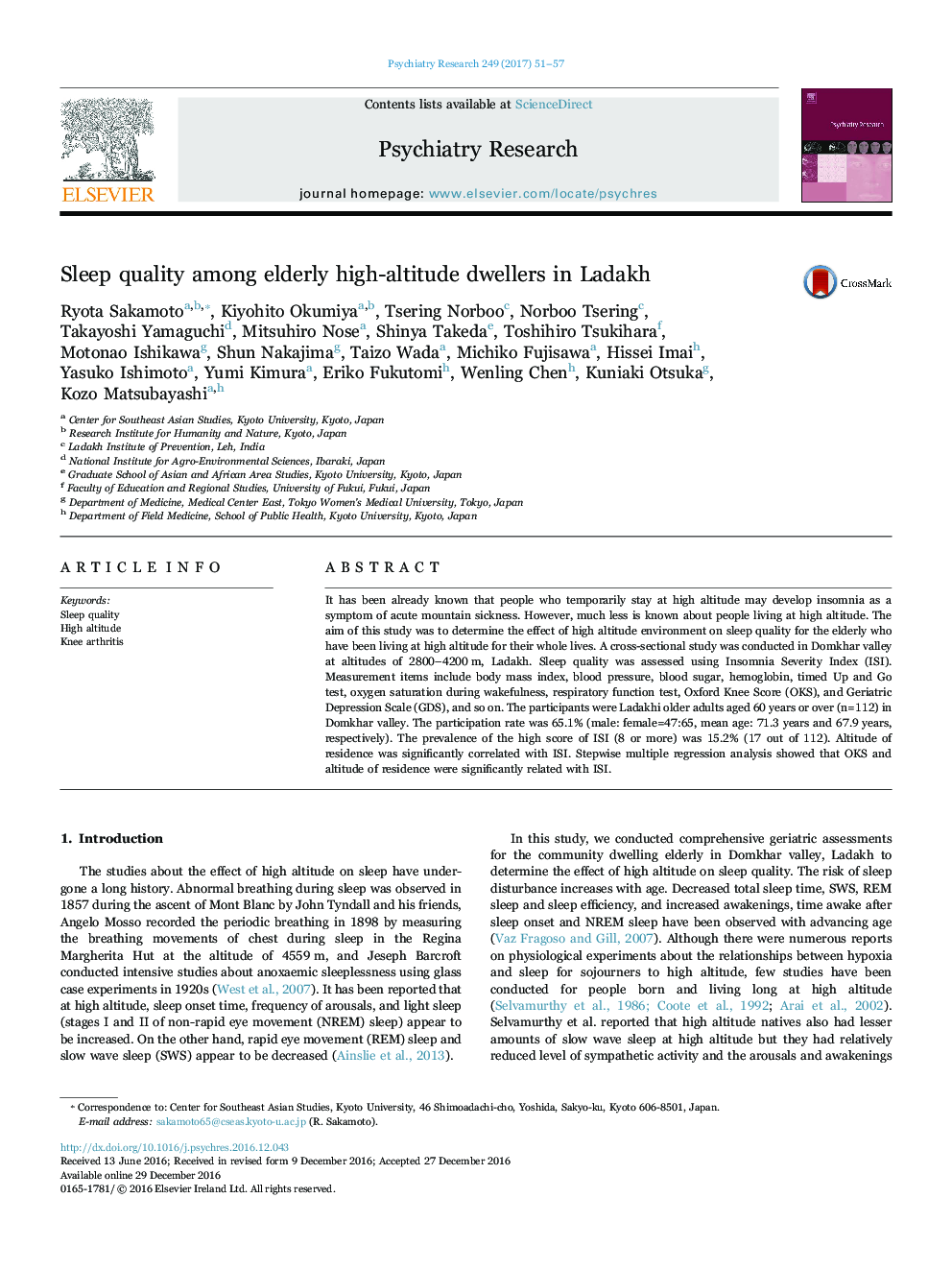| Article ID | Journal | Published Year | Pages | File Type |
|---|---|---|---|---|
| 4933705 | Psychiatry Research | 2017 | 7 Pages |
Abstract
It has been already known that people who temporarily stay at high altitude may develop insomnia as a symptom of acute mountain sickness. However, much less is known about people living at high altitude. The aim of this study was to determine the effect of high altitude environment on sleep quality for the elderly who have been living at high altitude for their whole lives. A cross-sectional study was conducted in Domkhar valley at altitudes of 2800-4200Â m, Ladakh. Sleep quality was assessed using Insomnia Severity Index (ISI). Measurement items include body mass index, blood pressure, blood sugar, hemoglobin, timed Up and Go test, oxygen saturation during wakefulness, respiratory function test, Oxford Knee Score (OKS), and Geriatric Depression Scale (GDS), and so on. The participants were Ladakhi older adults aged 60 years or over (n=112) in Domkhar valley. The participation rate was 65.1% (male: female=47:65, mean age: 71.3 years and 67.9 years, respectively). The prevalence of the high score of ISI (8 or more) was 15.2% (17 out of 112). Altitude of residence was significantly correlated with ISI. Stepwise multiple regression analysis showed that OKS and altitude of residence were significantly related with ISI.
Related Topics
Life Sciences
Neuroscience
Biological Psychiatry
Authors
Ryota Sakamoto, Kiyohito Okumiya, Tsering Norboo, Norboo Tsering, Takayoshi Yamaguchi, Mitsuhiro Nose, Shinya Takeda, Toshihiro Tsukihara, Motonao Ishikawa, Shun Nakajima, Taizo Wada, Michiko Fujisawa, Hissei Imai, Yasuko Ishimoto, Yumi Kimura,
